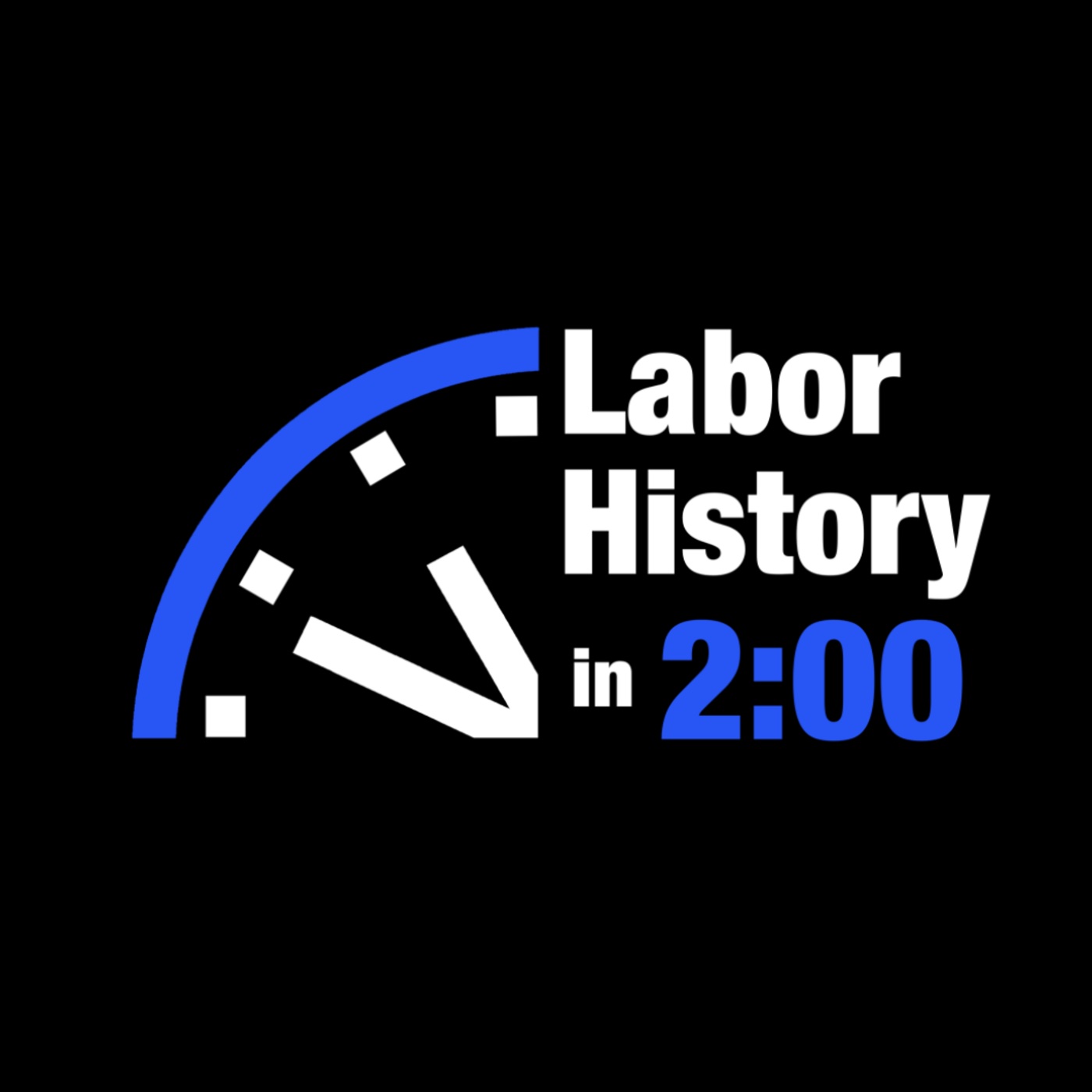Episodes

Thursday Oct 09, 2025
October 9 - The United Hebrew Trades is Founded
Thursday Oct 09, 2025
Thursday Oct 09, 2025
On this day in Labor History the year was 1888. That was the day that the United Hebrew Trades was founded in New York City. The new effort was patterned after the United German Trades. The goal was to organize Yiddish speaking workers.

Wednesday Oct 08, 2025
October 8 - The Not So Friendly Skies for Women
Wednesday Oct 08, 2025
Wednesday Oct 08, 2025
On this day in Labor History the year was 1986. Female flight attendants won an important legal victory. Can you imagine losing your job because you decided to get married? It might have happened if you were a flight attendant working in the mid-Twentieth century.

Tuesday Oct 07, 2025
October 7 - Happy Birthday, Joe Hill!
Tuesday Oct 07, 2025
Tuesday Oct 07, 2025
On this day in Labor History the year was 1879. The man who came to be known as Joe Hill was born Joel Emmanuel Hagglund in Gavle, Sweden. Hill traveled the United States organizing for the grassroots labor organization the Industrial Workers of the World.

Monday Oct 06, 2025
October 6 - Québec Autoworkers Walk Off the Job
Monday Oct 06, 2025
Monday Oct 06, 2025
On this day in Labor History the year was 1996 fifteen thousand workers at the General Motors Plant in Quebec walked off the job. Members of the Canadian Auto Workers union were frustrated with their wages. They were also angry about layoffs and GM’s moves to outsource some of the auto production to non-unionized labor.

Sunday Oct 05, 2025
October 5 - Labor Candidates Step Up
Sunday Oct 05, 2025
Sunday Oct 05, 2025
On this day in labor history, the year was 1886.
That was the day Henry George accepted the nomination to run for mayor of New York on the United Labor Party ticket.
In cities across the country, trade unionists met to found state labor parties and to hammer out political platforms for local and state elections.
In New York City, ULP advocates issued the Clarendon Hall platform and nominated Henry George as the ULP candidate for the mayoral race.
George had gained prominence with the 1879 publishing of his book, Progress & Poverty.
In it, he addressed private land ownership as the basis for inequality and advocated for a single tax system.
At New York’s Cooper Union that evening, where thousands of supporters gathered, George addressed the crowd.
He presented the ULP platform: higher pay, shorter hours, better working conditions, government ownership of railroads and communications and an end to police repression.
Burrows and Wallace describe the scene that night in their book, Gotham: A History of New York City to 1898.
During his speech, George declared that, “this government of New York City—our whole political system is rotten to the core.”
He argued that “politicians had made a trade out of assembling votes and selling them to powerful interests; what business got in return was police protection, lax enforcement of housing and health codes, friendly judges and fat franchises. To purify the political order, working class voters had to sever ties to all the established parties and choose from their own ranks.”
For a party that had just been founded weeks before, George came in second.
But like its sister organization in Chicago, the New York ULP would split over the issue of socialism within a year.

Saturday Oct 04, 2025
October 4 - Truman Seizes the Nation’s Oil Fields
Saturday Oct 04, 2025
Saturday Oct 04, 2025
On this day in Labor History the year was 1945. That was the day President Harry Truman issued Executive Order 9639. It ordered the US Navy to seize control of more than four dozen oil refineries across the country. As World War II was drawing to a close, workers in many industries were growing increasingly restless. They had seen company owners rake in record profits, and the workers felt they had not received their fair share.

Friday Oct 03, 2025
October 3 - Packinghouse Workers Win!
Friday Oct 03, 2025
Friday Oct 03, 2025
On this day in Labor History the year was 1943. That was the day the United Packinghouse Workers of America was chartered under the CIO. The new union was the result of the CIO’s Packinghouse Workers Organizing Committee. Started in 1937 the Organizing Committee was an effort to build a union that broke down barriers between races and crafts in the meatpacking industry.

Thursday Oct 02, 2025
October 2 - Baristas of the World, Organize!
Thursday Oct 02, 2025
Thursday Oct 02, 2025
Did you enjoy a cup of coffee to start your day this morning? On this day in Labor History the year was 2007. That was the day that Starbucks agreed to post information about union rights on an employee bulletin board at its store in Grand Rapids Michigan. The Industrial Workers of the World were attempting to organize the baristas at that store.

Wednesday Oct 01, 2025
October 1 - Molding the Future
Wednesday Oct 01, 2025
Wednesday Oct 01, 2025
On this day in Labor History the year was 1991. That was the day that the Pattern Makers League of North America merged with International Association of Machinists and Aerospace Workers. Have you ever heard of the Pattern Makers union? The Pattern Makers can trace their history all the way back to 1887.

Tuesday Sep 30, 2025
September 30 - Homestead Strikers Tried for Treason
Tuesday Sep 30, 2025
Tuesday Sep 30, 2025
On this day in Labor History the year was 1892. That was the day that 29 leaders of the Homestead Steel Strike in Pennsylvania were charged with treason against the state. If you are a regular listener to this broadcast, you have heard about this strike before.

